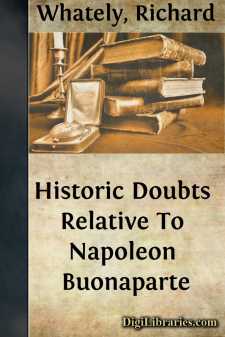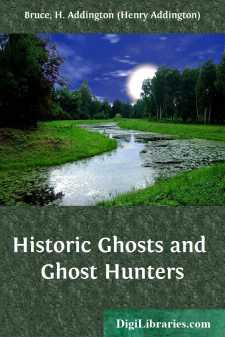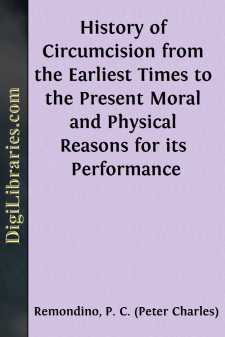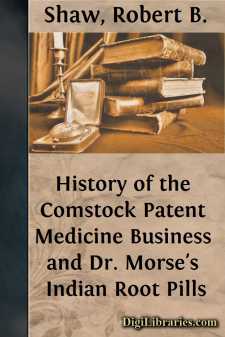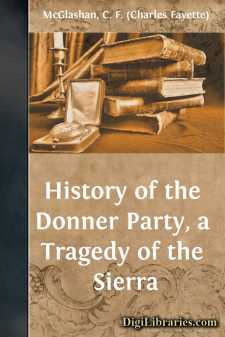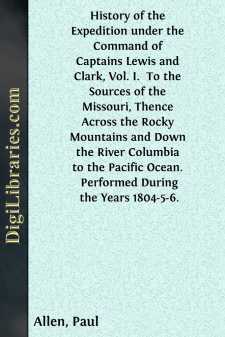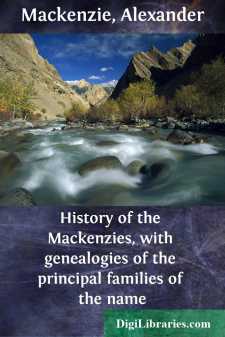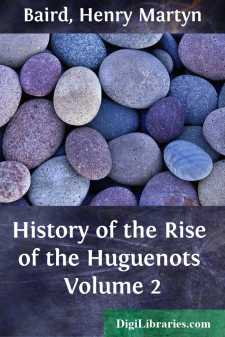Non-Classifiable
- Non-Classifiable 1768
Non-Classifiable Books
Sort by:
by:
Richard Whately
HISTORIC DOUBTSRELATIVE TONAPOLEON BUONAPARTE. Long as the public attention has been occupied by the extraordinary personage from whose ambition we are supposed to have so narrowly escaped, the subject seems to have lost scarcely anything of its interest. We are still occupied in recounting the exploits, discussing the character, inquiring into the present situation, and even conjecturing as to the...
more...
The Devils of Loudun Loudun is a small town in France about midway between the ancient and romantic cities of Tours and Poitiers. To-day it is an exceedingly unpretentious and an exceedingly sleepy place; but in the seventeenth century it was in vastly better estate. Then its markets, its shops, its inns, lacked not business. Its churches were thronged with worshipers. Through its narrow streets proud...
more...
INTRODUCTION. This book is the amplification of a paper, the subject of which was, “A Plea for Circumcision; or, the Dangers that Arise from the Prepuce,” which was read at the meeting of the Southern California Medical Society, at Pasadena, in December, 1889. The material gathered for that paper was more than could be used in the ordinary limits of a society paper; it was gathered and ready for...
more...
by:
Jacob Abbott
CHAPTER I. INFANCY. King Charles the Second was the son and successor of King Charles the First. These two are the only kings of the name of Charles that have appeared, thus far, in the line of English sovereigns. Nor is it very probable that there will soon be another. The reigns of both these monarchs were stained and tarnished with many vices and crimes, and darkened by national disasters of every...
more...
by:
Robert B. Shaw
History of the Comstock Patent Medicine Business and of Dr. Morse's Indian Root Pills For nearly a century a conspicuous feature of the small riverside village of Morristown, in northern New York State, was the W.H. Comstock factory, better known as the home of the celebrated Dr. Morse's Indian Root Pills. This business never grew to be more than a modest undertaking in modern industrial...
more...
Detailed Contents. Chapter I. Donner LakeA Famous Tourist ResortBuilding the Central PacificCalifornia's Skating ParkThe PioneersThe Organization of the Donner PartyHo! for California!A Mammoth TrainThe Dangers by the WayFalse Accounts of the Sufferings EnduredComplete Roll of the CompanyImpostors Claiming to Belong to the PartyKilled by the PawneesAn Alarmed CampResin IndiansA Mother's Death...
more...
by:
Paul Allen
LIFE OF CAPTAIN LEWIS. Monticello, August 18, 1813. SIR, In compliance with the request conveyed in your letter of May 25, I have endeavoured to obtain, from the relations and friends of the late governor Lewis, information of such incidents of his life as might be not unacceptable to those who may read the narrative of his western discoveries. The ordinary occurrences of a private life, and those also...
more...
Bishop Hay strongly impressed upon Mackenzie the propriety of getting his marriage with Agnes of Lovat legitimized, and to send for a commission to the Pope for that purpose. Donald Dubh MacChreggir, priest of Kirkhill, was despatched to Rome with that object, and, according to several of the family manuscripts, procured the legitimation of the marriage. "This priest was a native of Kintail,...
more...
Andrew J. Blackbird, the author of this little book, is an educated Indian, son of the Ottawa Chief. His Indian name is Mack-aw-de-be-nessy (Black Hawk), but he generally goes by the name of "Blackbird," taken from the interpretation of the French "L'Oiseau noir." Mr. Blackbird's wife is an educated and intelligent white woman of English descent, and they have four children....
more...
THE FIRST CIVIL WAR.Inconsistencies of the Edict of January.The Edict of January was on its very face a compromise, and as such rested on no firm foundation. Inconsistent with itself, it fully satisfied neither Huguenot nor Roman Catholic. The latter objected to the toleration which the edict extended; the former demanded the unrestricted freedom of worship which it denied. If the existence of two...
more...


